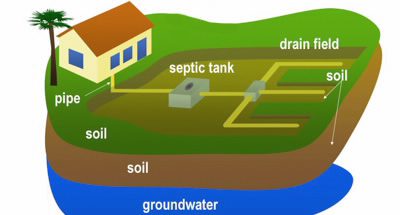
When it comes to maintaining a good septic system, septic tank pumping is an essential component, particularly in communities with a high population density such as Los Angeles. Even though homeowners may consider it to be nothing more than a normal maintenance activity, there are considerable environmental advantages connected with maintaining correct septic tank pumping behaviors. This article will focus on some major factors that illustrate the environmental benefits that are associated with these advantages.
1. Prevention Of Groundwater Contamination
One of the primary environmental benefits of regular septic tank pumping is the prevention of groundwater contamination. When a septic tank becomes full, untreated wastewater can leak out, potentially contaminating groundwater sources. In Los Angeles, where water resources are precious, safeguarding groundwater quality is essential for both human health and ecosystem integrity.
2. Reduction Of Nutrient Pollution
Septic tanks contain various pollutants, including nutrients such as nitrogen and phosphorus. When these nutrients enter groundwater or surface water bodies through leakage or overflow, they can contribute to nutrient pollution. Overnutrition can cause algal blooms, oxygen shortages, and damage to aquatic organisms. Proper septic tank pumping Los Angeles helps mitigate nutrient pollution by removing accumulated solids before they can leach into the environment.
3. Preservation Of Soil Quality
Untreated wastewater from malfunctioning septic systems can adversely affect soil quality by introducing pathogens, heavy metals, and other contaminants. These pollutants can compromise soil fertility, inhibit plant growth, and pose risks to human and animal health. By maintaining a well-functioning septic system through regular pumping, homeowners can help preserve the integrity and health of the soil in their surroundings.
4. Protection Of Aquatic Ecosystems
In regions like Los Angeles, where urban development encroaches upon natural habitats and waterways, protecting aquatic ecosystems is paramount. Properly functioning septic systems play a vital role in safeguarding the health of rivers, streams, and marine environments by preventing the discharge of untreated wastewater. Thus, routine Los Angeles septic pumping supports the maintenance of aquatic ecosystems’ overall ecological balance as well as biodiversity.
5. Mitigation Of Odor And Air Pollution
An overloaded or malfunctioning septic system can emit foul odors due to the buildup of anaerobic bacteria and the decomposition of organic matter. These odors not only create discomfort for residents but can also contribute to air pollution in the surrounding area. By promptly pumping the septic tank and removing accumulated solids, homeowners can minimize odor emissions and reduce their environmental footprint.
6. Minimization Of Greenhouse Gas Emissions
Methane is a strong greenhouse gas that is produced during the anaerobic breakdown of organic materials in septic tanks and contributes to climate change. By lowering the amount of organic material available for breakdown, routine septic tank pumping helps reduce methane emissions. By doing this, householders may contribute to reducing the negative effects that wastewater treatment-related greenhouse gas emissions have on the environment.
7. Compliance With Environmental Regulations
For the sake of the environment and the general public’s health, septic system maintenance rules and regulations must be followed. Regarding the frequency of septic tank pumping and appropriate waste disposal procedures, municipal authorities in Los Angeles could have certain regulations. Homeowners may help ensure that the environment is cleaner and healthier for both the current and future generations by adhering to these standards.
Conclusion
Los Angeles residents who get their septic tanks pumped out correctly may reap a multitude of environmental benefits, including the prevention of groundwater contamination and the reduction in greenhouse gas emissions. Homeowners may take an active role in protecting the environment while also preserving the durability and effectiveness of their septic systems if they acknowledge the need to perform routine maintenance and make an investment in expert septic services.